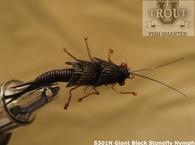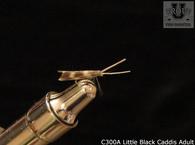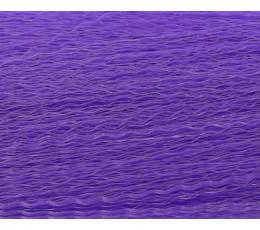When splicing two fishing lines of similar diameter together, the little known J Knot proved to be stronger than either the Blood Knot or the surgeon's Knot. In fact the J Knot beat all other knots for that purpose according to the Feburary 2009 Issue of Field & Stream.
In the J Knot, unlike the Blood Knot or the Surgeon Knot, the standing line goes straight thru the knot’s initial turns. This feature prevents the monofilament from wrapping tightly around a small radius which may cause heat build up resulting in fracturing. Because of this, it is the best knot for attaching fly fishing leaders to fly lines.
In the illustration below in order to facilitate photographing the knot tying process, I have used blue cord to represent fly line and brown cord to represent the leader.
Tying the J Knot:
Step #1 – Overlap the main line and the leader by at least 12 inches.
Step#2 – Tie a large overhand loop, pulling the leader all the way through.
Step#3 - Hold the loop of the overhand open as you pass the two lines under the bottom and up through the loop.
Step #4 - Then pass the two lines over the top of the loop and back through the loop in a downward direction.
Step #5 – Then take one more turn under the bottom part of the loop and upward through the loop again (Not illustrated) and pull all four lines to tighten the loop.
Step #6 – As with all knots, do not forget to lubricate the line with water or saliva prior to pulling tight and be sure to cut the tag ends correctly.









